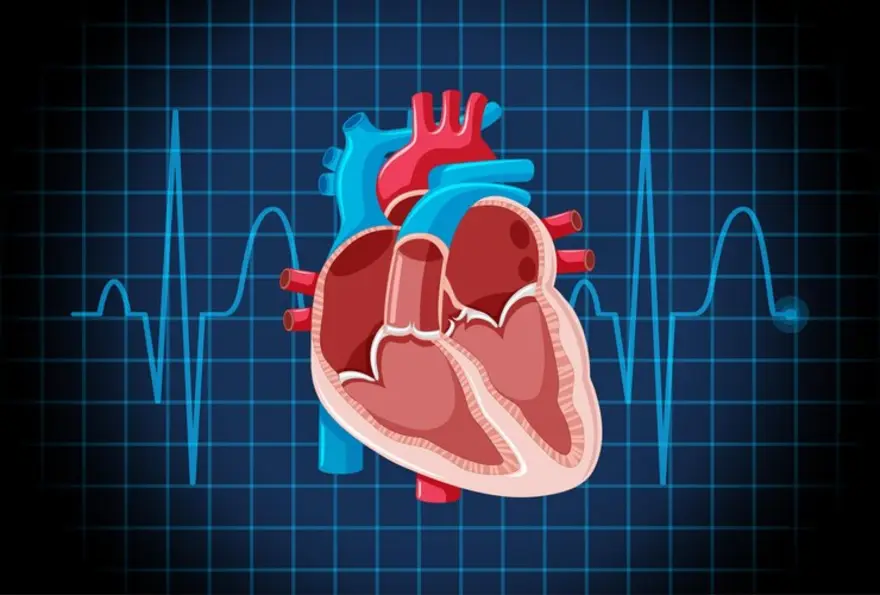Blood test for heart
4 Heart Related Blood Tests for Heart Disease: Assess your Heart Health
Are you aware that your heart, the organ which you usually and casually blame for your unwarranted actions, actually doesn't control your emotions? It, in fact, allows pumping of blood, oxygen, and nutrients throughout your body. It beats over 100,000 times per day and pumps about 1.5 gallons of blood every minute. It keeps itself superactive so that you can keep going. But are you taking enough care of your heart health? Heart disease has become one among the emerging health issues in developing India. As per the WHO, more than four out of five heart disease deaths are due to heart attacks and strokes, and one third of these deaths occur prematurely in people below 70 years of age. Don’t let your sedentary lifestyle invite health problems for you. Keep track of your health parameters through our TruHealth Health Package. Keep Abreast of Emerging Heart Issues with Health Tests Smoking, high blood pressure, high cholesterol and diabetes are some of the common risk factors for developing heart conditions. While your doctor is the best guide to help you identify your risk of heart disease, it is important to know that some heart related blood tests hold a lot of importance to diagnose and manage heart conditions. Top Heart Blood Tests List for Diagnosing Heart Disease 1. Lipid profile test: Also called cholesterol test, this test measures the levels of fats in your blood and can point out towards your risk of having a heart attack, stroke or other heart disease. This test typically includes measurements of various other numbers: Total cholesterol: This refers to the amount of cholesterol in your blood. An increased level of total cholesterol increases your risk of heart disease. In general, your total cholesterol should be under 200 milligrams per deciliter (mg/dL) or 5.2 millimoles per liter (mmol/L). High-density lipoprotein (HDL) cholesterol: Also called the "good" cholesterol, it helps keep arteries open and your blood to flow more freely. Low-density lipoprotein (LDL) cholesterol: Also called the "bad" cholesterol, too much LDL cholesterol in your blood can lead to plaque deposition in your blood vessels, and results in reduced blood flow. These plaque build up may rupture and cause major heart and blood vessel problems. Triglycerides: These are another type of fat in the blood, high levels of which can raise your risk of heart disease. Your triglyceride level should be less than 150 mg/dL (1.7 mmol/L). For your reference: Total cholesterol = HDL cholesterol + LDL cholesterol + 20% of Triglycerides level 2. High-sensitivity C-reactive protein test (hs CRP test) C-reactive protein (CRP) is a protein which is produced by your liver as part of your body's response to inflammation that may occur due to an injury or infection. The hs-CRP test can spot lower levels of C-reactive protein (CRP) in your blood. A raised hs-CRP test values indicate a higher risk of heart attack, stroke and cardiovascular disease. This blood test has a great significance in diagnosing heart conditions as it can help determine your risk of heart disease before you have symptoms. An hs-CRP level above 2.0 mg/L is considered to indicate an increased risk of heart disease. However, CRP levels can be temporarily increased by many other situations other than a heart disease, like a viral infection. Hence, some experts may suggest doing the test twice, two weeks apart. Remember, only looking at hs-CRP levels may not be enough to arrive at something definite. Your doctor can ask for other health tests as well, and combine your hs-CRP test and other blood test results with your risk factors to get an overall sense of your heart health. 3. Natriuretic peptides test Brain natriuretic peptide is a protein that your heart and blood vessels make to help your body eliminate fluids, relax blood vessels and excrete sodium into your urine. When your heart gets damaged, levels of BNP entering your blood increases. Different people can have different values for normal BNP levels since it can vary based on the age, gender, and being overweight. Need help to detect, diagnose, and evaluate the severity of congestive heart failure (CHF)? Book a NT-Pro BNP Serum test that measures the levels of BNP or NT-pro BNP in your blood. 4. Troponin (T) Test for Heart Attack Troponin (or cardiac troponin) is a type of protein found in your heart muscles. It isn't normally found in the blood and is released into the blood when heart muscles become damaged. A troponin test looks for the level of troponin in your blood. As more and more heart muscle gets damaged, greater amounts of troponin are released in the blood. Two types of cardiac troponin T (cTnT) and I (cTnI) are used as cardiac profile test to identify heart injury or damage. A high level of troponin in the blood may indicate you are having or recently had a heart attack. Some studies have found that troponin I is more specific and a better cardiac marker than troponin T blood test for heart attack. Remember that one heart blood test alone may not determine your overall risk of heart disease. If you think your lifestyle or family history can put you at risk of developing heart disease at an early age, get in touch with a doctor, book yourself blood test for heart blockage and heart Disease as advised, and improve your lifestyle habits.
Cholesterol – The Misunderstood Molecule and its role in Heart health
CHOLESTEROL sounds more like a threat call than an important molecule in the body. “Chole” come from a Greek word for Bile and Sterol are a collective group of molecules. We all Have Liver and Liver produces about 1-2 grams of cholesterol daily based on our intake of cholesterol. In case the intake of cholesterol rich food is less than the production increases and vice versa. Cholesterol is important for the production for Vitamin D, Hormone production, bile juice, cell membrane. Cholesterol being a fatty molecule it cannot mix with blood hence a transport agent in the form of Lipoproteins is used by the body to travel in our blood. These lipoproteins are what we call the HIGH-DENSITY LIPOPROTEINS_HDL AND LOW-DENSITY LIPOPROTEINS_LDL. The HDL brings the excess cholesterol to liver from all over the body for disposal hence its termed as GOOD CHOLESTEROL. On the other hand, LDL transports cholesterol and fat from Liver to all over the body and we call them BAD CHOLESTEROL. The LDL has the bad name as its associated with plaque formation and heart diseases. However another group of Lipoproteins called LP(a) are responsible for plaque formation on damaged artery sites (due to oxidation- when we breath air). Cholesterol has several metabolic functions, high cholesterol is equal to muscle growth, muscle repair and it’s a precursor for reproductive hormones. So, cutting it down does not really help. For people on plant-based diets the potassium manganese ratio can alter the blood cholesterol and low levels of sodium can increase LD. What would help is lifestyle changes that help bring a balance in the levels of cholesterol. 1. Reduce stress- More the stress more cholesterol 2. Eat at least 1 cup of whole grains a day- More fiber less cholesterol 3. Eat at least 1/3 rd cup of nuts and seeds- Good fat kills bad fat 4. Include herbs and spices in your cooking- Aids in Digestion of the fat 5. Aim for 45 mins of concentrated activity or exercise everyday 6. Avoid processed foods-Anything that has a shelf life longer than natural foods 7. Eat at least 5 -7 servings of fruits and raw vegetables a day 8. Improve sleep quality by practicing yoga nidra - Sleep is an excellent healer 9. Use cold pressed oils for cooking- Groundnut, coconut, mustard or sesame oil Change of lifestyle can bring a balance, reduce the levels of LDL. Fats can help us stay full and focused for longer time compared to carbs and proteins. Do not shun them in the name of cholesterol. Instead they will help you maintain a balance in the levels. Since it’s naturally produced by the body, we now know that its not harmful but beneficial in the moderate amounts. Keep a track of your heart by doing regular health checkup. To know more, click here Go ahead and keep your heart healthy!! Stay Happy and Healthy!! Contributed by Anitha Narayamurthy, Dietitian and Clinical Nutritionist
 Home Visit
Home Visit Upload
Upload
















 WhatsApp
WhatsApp